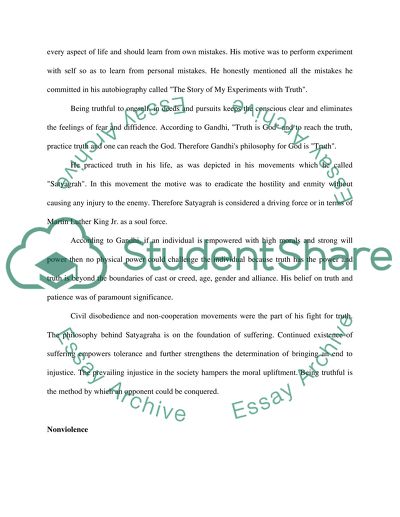Cite this document
(“Discuss key episodes in Gandhi's life in which he worked his own way Essay”, n.d.)
Discuss key episodes in Gandhi's life in which he worked his own way Essay. Retrieved from https://studentshare.org/philosophy/1586564-discuss-key-episodes-in-gandhis-life-in-which-he-worked-his-own-way-through-ethical-dilemmas-from-his-autobiography-my-experiments-with-truth
Discuss key episodes in Gandhi's life in which he worked his own way Essay. Retrieved from https://studentshare.org/philosophy/1586564-discuss-key-episodes-in-gandhis-life-in-which-he-worked-his-own-way-through-ethical-dilemmas-from-his-autobiography-my-experiments-with-truth
(Discuss Key Episodes in Gandhi'S Life in Which He Worked His Own Way Essay)
Discuss Key Episodes in Gandhi'S Life in Which He Worked His Own Way Essay. https://studentshare.org/philosophy/1586564-discuss-key-episodes-in-gandhis-life-in-which-he-worked-his-own-way-through-ethical-dilemmas-from-his-autobiography-my-experiments-with-truth.
Discuss Key Episodes in Gandhi'S Life in Which He Worked His Own Way Essay. https://studentshare.org/philosophy/1586564-discuss-key-episodes-in-gandhis-life-in-which-he-worked-his-own-way-through-ethical-dilemmas-from-his-autobiography-my-experiments-with-truth.
“Discuss Key Episodes in Gandhi'S Life in Which He Worked His Own Way Essay”, n.d. https://studentshare.org/philosophy/1586564-discuss-key-episodes-in-gandhis-life-in-which-he-worked-his-own-way-through-ethical-dilemmas-from-his-autobiography-my-experiments-with-truth.


